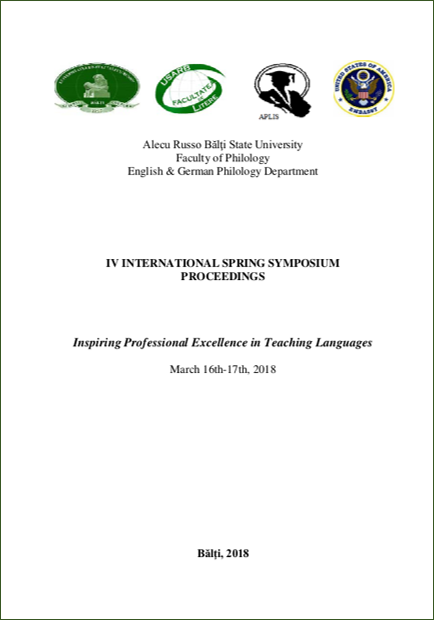PHRASEOLOGICAL MEANING THROUGH THE TRADITIONAL AND CULTURE-ORIENTED APPROACH
PHRASEOLOGICAL MEANING THROUGH THE TRADITIONAL AND CULTURE-ORIENTED APPROACH
Author(s): Ludmila Raciula
Subject(s): Social Sciences, Language and Literature Studies, Education, Foreign languages learning, Theoretical Linguistics, Applied Linguistics, Communication studies, Theory of Communication, School education
Published by: Biblioteca Ştiinţifică a Universităţii de Stat Alecu Russo
Keywords: phraseological meaning; linguocultural approach; cognitive culture-oriented analysis; conceptual metaphor;
Summary/Abstract: This article discusses the issue of phraseological meaning from the cognitive culture-oriented perspective, which is based on two key assumptions. The first is that language and culture are two separate and interacting semiotic systems, while phraseological units are the products of this interaction. Thus, phraseological meaning is formed as a result of inter-semiotic transposition, i.e. transfer of some conceptual information from nonverbal signs of culture system into the verbal ones of the language system. The second assumption results from the first and stipulates that phraseological meaning is a two-strata structure, the surface stratum and the deep stratum. The deep structure encloses the conceptual foundation based on cultural elements and the surface stratum is its embodiment into language signs. We have chosen the semantic field of emotions to put in practice the cognitive culture-oriented analysis. Anthropologists have proven that emotions are not simply physiological reactions of human bodies, they are also the result of people’s cultural interpretation of extra-linguistic reality. Thus, we shall try to identify the conceptual information that underlies phraseological units depicting human emotions.
Book: IV International spring symposium proceedings
- Page Range: 163-173
- Page Count: 11
- Publication Year: 2018
- Language: English
- Content File-PDF

